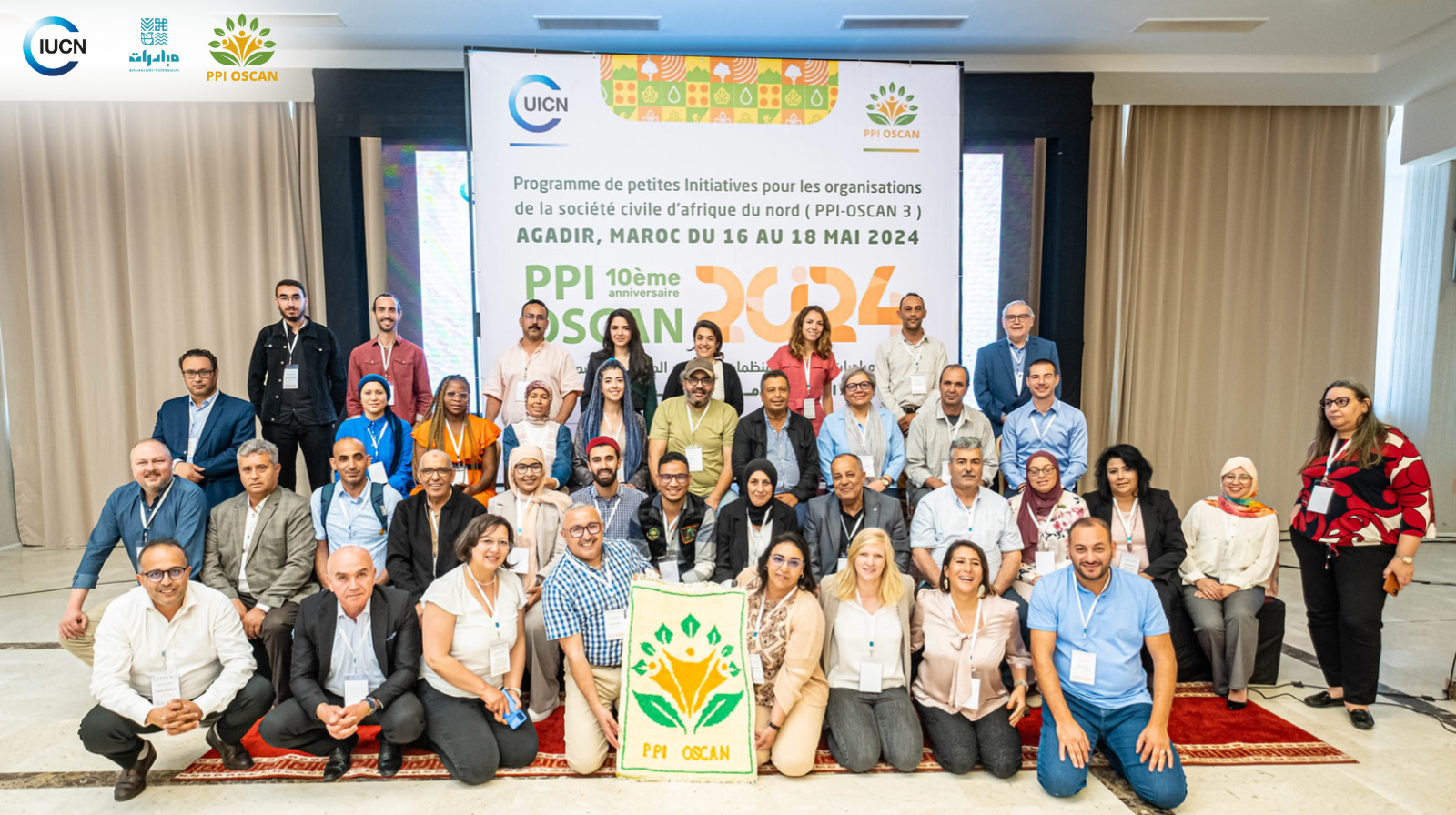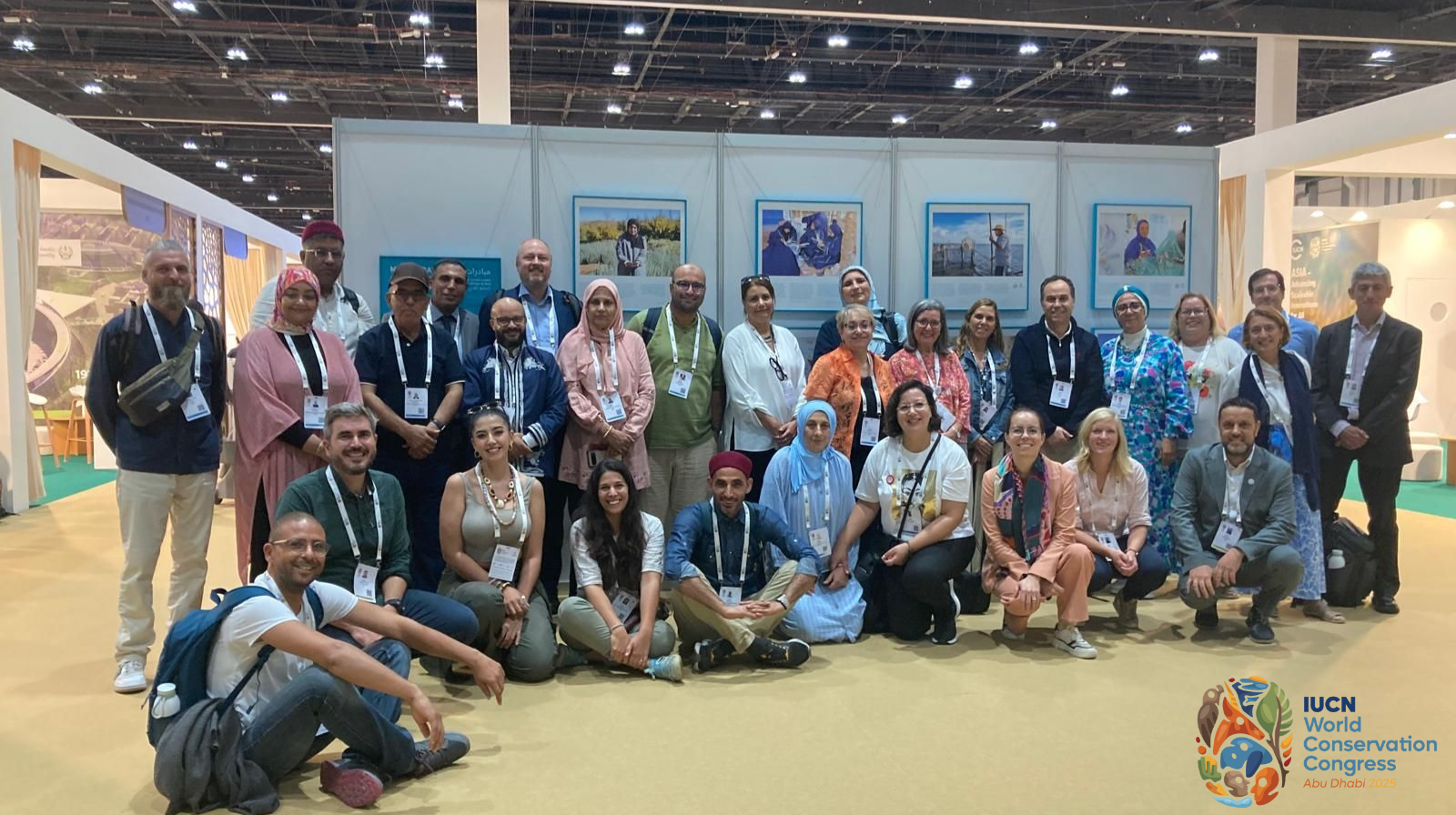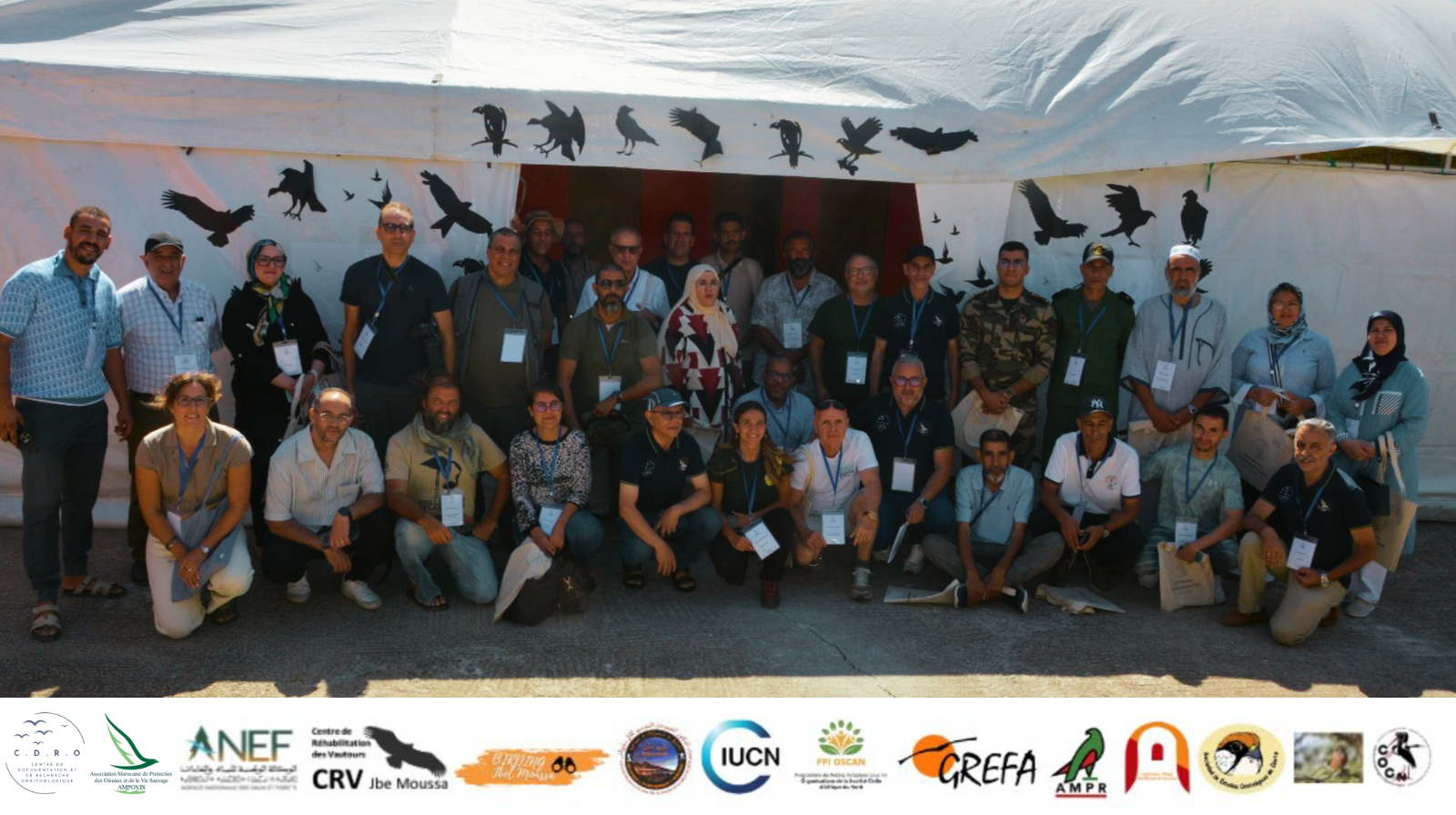Preservation of seeds in the Nile basin: A sustainable initiative for Biodiversity
Located in the Aswan region of Egypt, the Nile Basin is recognized for its rich and diverse flora, which includes rare and endangered plant species. However, this biodiversity is increasingly threatened due to several factors, including deforestation, rapid urbanization, and the effects of climate change. In response to these challenges, essential measures must be taken to ensure the protection and preservation of local plants.
Thus, the project “Nile Basin Seed Bank” was launched by the Benban Solar Energy Investors Association for Community Development, with support from the PPI OSCAN 3 program. This initiative was designed to ensure the conservation of local plant resources and promote sustainable practices for environmental protection. As a result, various actions have been implemented to ensure the project’s effectiveness and mobilize the relevant stakeholders.
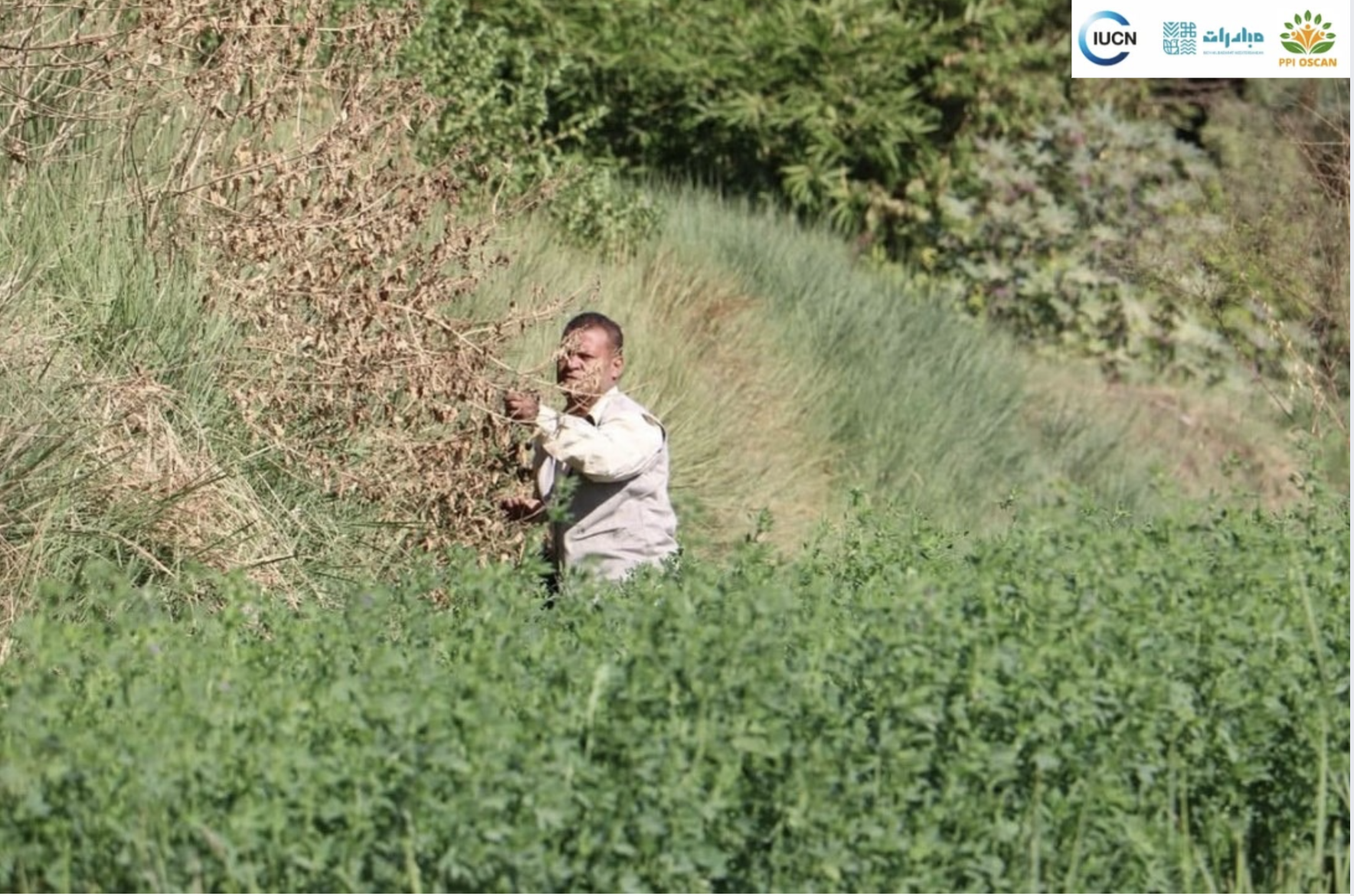
Concrete Actions to Protect the Plants of the Nile
In order to ensure effective conservation of local plant species, several specific initiatives have been implemented. First, seeds from local plants were collected and stored under optimal conditions to guarantee their long-term preservation. Thanks to carefully organized field expeditions, samples were collected, documented, and integrated into a rigorous conservation system. The first collections were made on the islands of the First Cataract and Koubaneya Island, where several rare plants were cataloged and secured. Furthermore, an infrastructure dedicated to seed conservation was established at the Prince Takamado Visitors Center, located on Saluga Island, a protected area in Aswan. This center was specially designed to ensure optimal storage conditions to preserve the seeds in the best possible way. Additionally, specialized training sessions were organized to provide researchers, farmers, and teachers with the necessary knowledge on seed collection and preservation. Led by experts from the National Research Center (NRC) and the Desert Research Center (DRC), these sessions facilitated the transfer of essential skills for the project’s sustainability. Finally, local communities were actively involved from the outset of the project. In particular, residents of the Nile islands and banks were trained in seed collection and sorting techniques. As a result, ten women and ten youth received paid training, enabling them not only to acquire practical skills but also to generate income while actively participating in the conservation of natural resources.
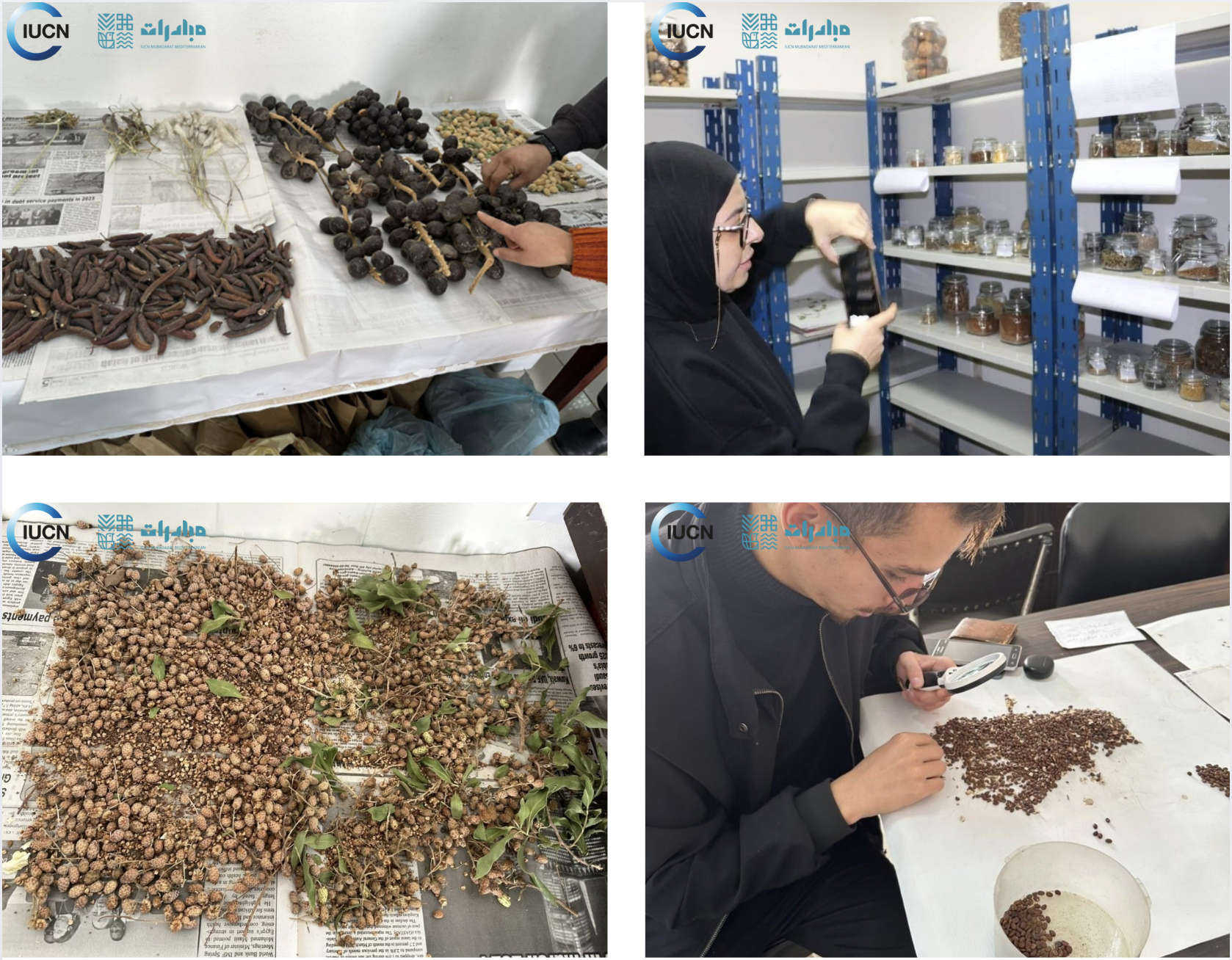
A Sustainable Initiative for the Preservation of Seeds in the Nile Basin
Until now, no specific seed bank had been set up for plants from the Nile basin. Thanks to this project, a major breakthrough in the conservation of local flora has been achieved. To ensure the preservation of plant resources, a step-by-step approach has been adopted. Although the project is currently focused on Egypt, its expansion to other countries in the Nile basin is envisaged. In this way, seed collection and conservation will gradually be extended to other relevant regions, ensuring sustainable protection of local species.
To facilitate knowledge management and exchange, a centralized database has been set up to document the seeds collected. Thanks to this tool, information sharing between researchers and institutions involved in plant conservation in North Africa will be strengthened. In this way, better scientific cooperation can be ensured and more effective preservation strategies implemented.
The project was designed to generate significant impact, both locally and nationally. At the local level, communities have been made aware of environmental issues, and economic opportunities have been created thanks to the training and participation of local people in seed collection. In addition, the reintroduction of local plants into their natural environment has been encouraged, contributing to the restoration of ecosystems.
At national level, efforts have been made to strengthen policies in favor of biodiversity conservation. In addition, scientific research and the improvement of local crops have been supported through access to preserved seeds. Last but not least, the project has played an essential role in food security, by ensuring the preservation of plant resources capable of adapting to future climatic conditions. By combining innovation, conservation and collaboration, a significant step forward in the preservation of the Nile Basin’s plant heritage has been achieved, enabling sustainable use of resources by future generations.
This project is being implemented as part of the third phase of the Small Initiatives Program for North African CSOs (PPI OSCAN), coordinated by the IUCN Centre for Mediterranean Cooperation. It is funded by the French Global Environmental Facility (FFEM), the MAVA Foundation, and the Sigrid Rausing Trust. The supported initiatives aim to restore ecosystems and promote sustainable livelihoods in biodiversity-rich regions. To learn more about the PPI OSCAN 3 projects: MUBADARAT.


